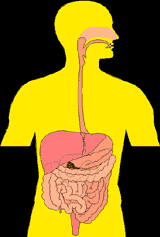|
The body's detoxification system works constantly to render harmless and dispose of all of the body's toxins, including ingested and absorbed chemicals. When the disposal system can't keep up with the incoming load of toxins, health problems usually result. We don't necessarily mean that you grow a third eye or qualify for a Superfund grant—often the problems are subtle and blamed on "getting older."
So, toxins in our bodies could be partly to blame for what ails us healthwise? But don't government regulations ensure that our exposure to toxic chemicals is no greater than the levels our bodies can handle safely? Not really.
When a US government agency—usually the Environmental Protection Agency—establishes "safe" limits for human exposure to a chemical—whether it be an additive in plastic, the toxic element mercury,
 or a chemical in hairspray—they do so based on the effects of that chemical alone. But in the real world, we are exposed simultaneously to many chemicals over the course of a given day, month, year, or decade. Unlike what happens in a movie fight scene, the bad guys—in this case, the toxins—do not present themselves one at a time to be disposed of by the hero. Your body has to deal with the whole gang of bad guys at once.
or a chemical in hairspray—they do so based on the effects of that chemical alone. But in the real world, we are exposed simultaneously to many chemicals over the course of a given day, month, year, or decade. Unlike what happens in a movie fight scene, the bad guys—in this case, the toxins—do not present themselves one at a time to be disposed of by the hero. Your body has to deal with the whole gang of bad guys at once.
Even if government-established safety limits existed for all chemicals—they don't—and even if the established limits were all truly safe—they aren't—most COMBINATIONS of chemicals have not been evaluated and will almost always impart a higher toxic load to the body than would the chemicals individually. (Think about the standard warnings we get regarding drug interactions.) People's abilities to deal with these toxic loads vary greatly, depending on factors such as age, health status, nutrition, total exposure to toxins, and use of alcohol, pharmaceuticals, and other liver-impairing substances.
Providing advice on your personal struggle to maintain an efficient detoxification system and overall good health is beyond the scope of Grinning Planet, but it's always helpful to eat a wide variety of fresh fruits and vegetables, whole grains, nuts, and seeds; to keep your bad habits
|
|
to a minimum; and to avoid toxic exposures in the first place by eliminating your use of pesticides and other chemicals as much as possible. That includes many common household cleaners and personal products. (Safer alternatives are available!)
In terms of the political debate, the Grinning Planet team plans to be wary of government assurances of "safe doses" of chemicals. Better to err on the low side in this case, lest we end up sitting in the Freaks with Beaks booth at the carnival.
|
|
BRAIN FOOD |
|
U.S. law does NOT require chemical companies to:
- tell EPA how their compounds are used;
- conduct basic health and safety testing of their products before they are sold; or
- monitor where their products end up in the environment.
Most applications to produce a new chemical are approved by the EPA with no health and safety data.
Source: Environmental Working Group
|
|


